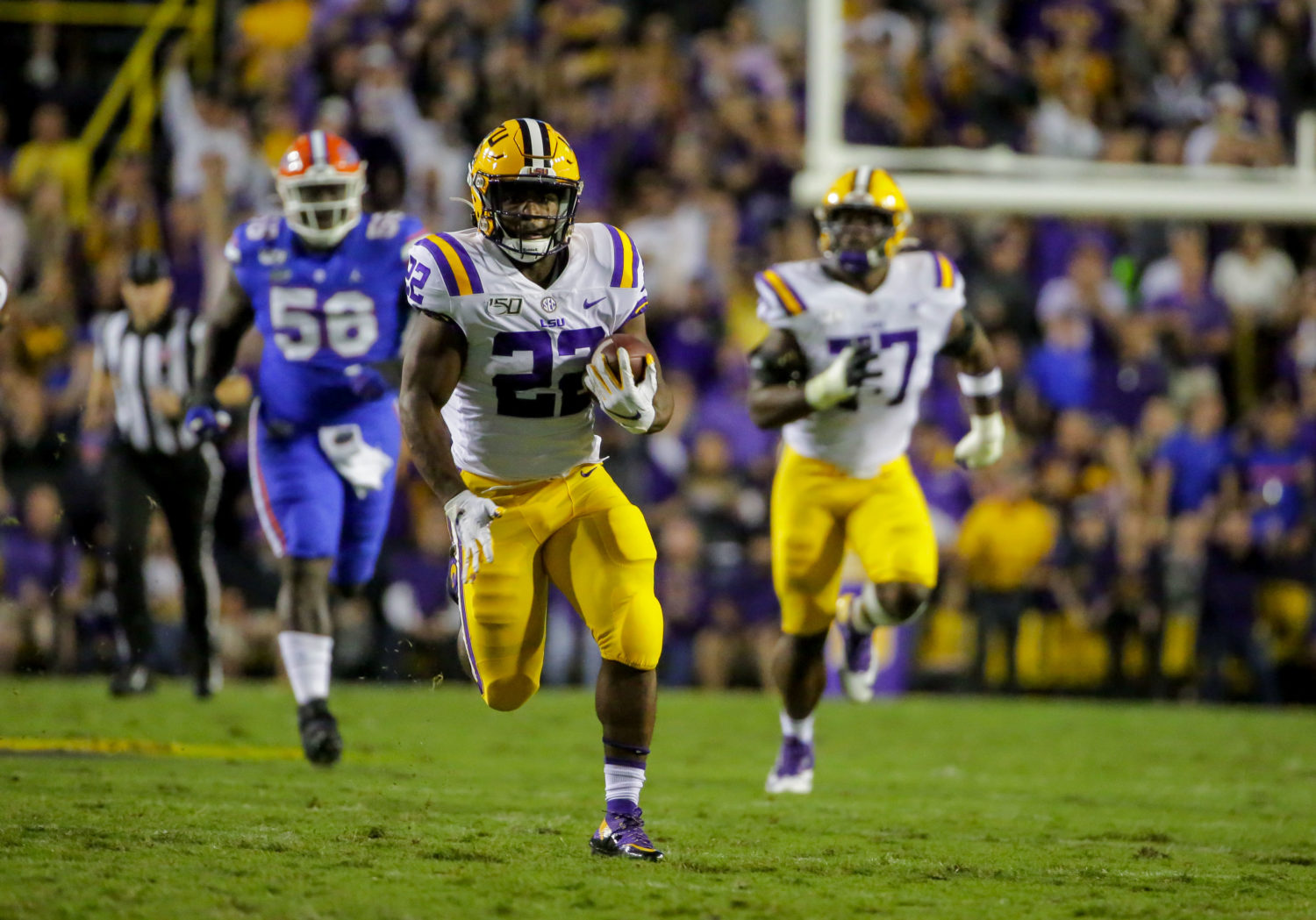
LSU football: Tigers keep rolling despite defensive problems
By Les East
Published:
It didn’t go the way it figured to go.
But it turned out just fine for LSU.
The No. 5 Tigers’ game against No. 7 Florida in Tiger Stadium on Saturday night didn’t figure to be a shootout.
The Gators play really good defense. The Tigers have been erratic defensively, but have a lot of talent, are getting healthy and were coming off a really good performance.
Plus Florida’s offense figured to be rather limited. It was fairly pedestrian even before starting quarterback Feleipe Franks suffered a season-ending ankle injury last month and new starter Kyle Trask suffered a sprained knee last week.
But in the end Saturday’s final was LSU 42, Florida 28.
The high point total was no fluke. There weren’t pick sixes or scoop-and-scores. No kick returns for touchdowns. No short fields created by turnovers.
There were long touchdown drives by both teams – lots of them.
In the end, Joe Burrow was as good as he has been all season – and he has been very, very good every game this season.
Justin Jefferson and Ja’Marr Chase were both really, really good – as they have been week in and week out.
Clyde Edwards-Helaire was better than he had been all season – rushing for 134 yards and two touchdowns on just 13 carries – to provide much-needed offensive balance that had arrived for the first time a week earlier.
But that was against Utah State and this was against a very, very good defense that a week earlier had allowed then-No. 7 Auburn to rush for 10 fewer yards than Edwards-Helaire did.
The success that Edwards-Helaire had and the comfort level with which Burrow operated (no sacks) were the result of a season-best and just-plain-outstanding performance by the LSU offensive line.
“That’s about as flawless as an offensive line has ever played that I’ve ever seen,” Burrow said afterward.
LSU rolled into this game at 5-0 and 1-0 in the SEC, having only one close call – a 45-38 victory at then-No. 9 Texas in Week 2.
The passing game had been one of the biggest stories in all of college football in September and the first weekend of October.
The question marks about this LSU team had involved two staple strengths of numerous LSU teams in recent seasons if not decades – the running game and the defense.
The running game – both the offensive line and Edwards-Helaire – responded to the challenge presented by the Gators, 6-0 and 3-0 entering Saturday’s game.
Now for the LSU defense.
The Tigers looked like they were coming around against Utah State. They were getting healthy and LSU seemed to have figured out a way to run its new hurry-up offense without placing an undue burden on the defense.
But the defense seemed to take a couple of steps backward on Saturday as the Gators put together four long touchdown drives to take a 28-21 lead one possession into the third quarter.
Kyle Trask was outstanding, operating with little duress as LSU defensive coordinator Dave Aranda relied on his line to generate a pass rush that it never provided. The Gators repeatedly converted third downs (9-for-17 in the game) and kept the chains moving until they reached the end zone.
But after Florida claimed its only lead of the game on that first second-half possession, the LSU defense came to life. It didn’t allow another point.
Aranda got more creative with his pass rush. He brought more bodies, from different angles, with less predictable attack points.
Freshman Derek Stingley Jr. bounced back from being picked on more than he had been all season – with pretty good success – to make a crucial end-zone interception, his third interception in as many games, with the Tigers clinging to a seven-point lead midway through the fourth quarter.
The Gators presented the biggest challenge yet to the Tigers. In response, LSU’s passing game was still outstanding, the running game and the offensive line were as good as they have been if not better and the defense found a way to contribute to a huge win during the second half.
There remains much work to do on defense and we might have to accept that this defense is never going to be all that good.
But this outcome indicates that lowering the ceiling on expectations for the defense might not necessitate lowering expectations for the LSU team as a whole.
Les East is a New Orleans-based football writer who covers LSU for SaturdayDownSouth.com. Follow him on Twitter @Les_East.







